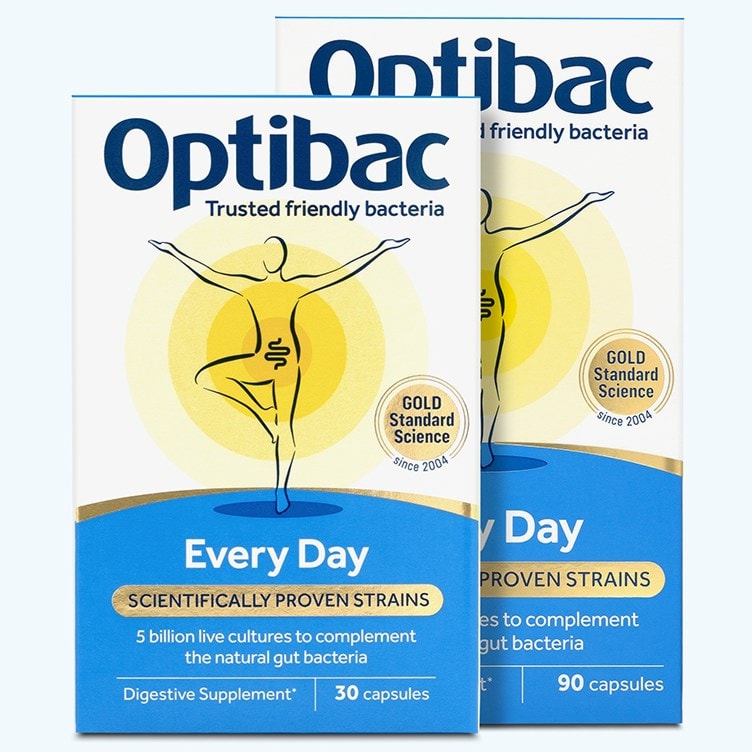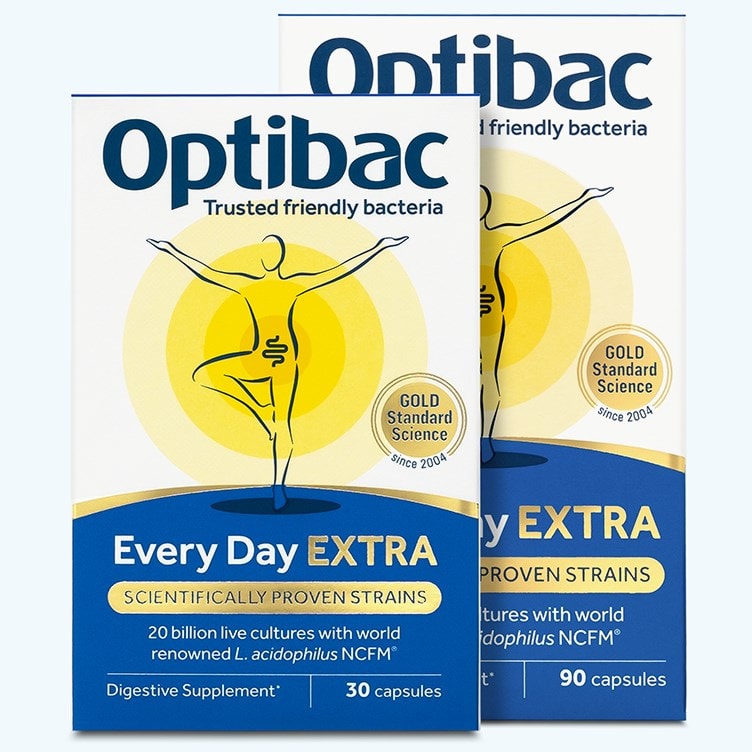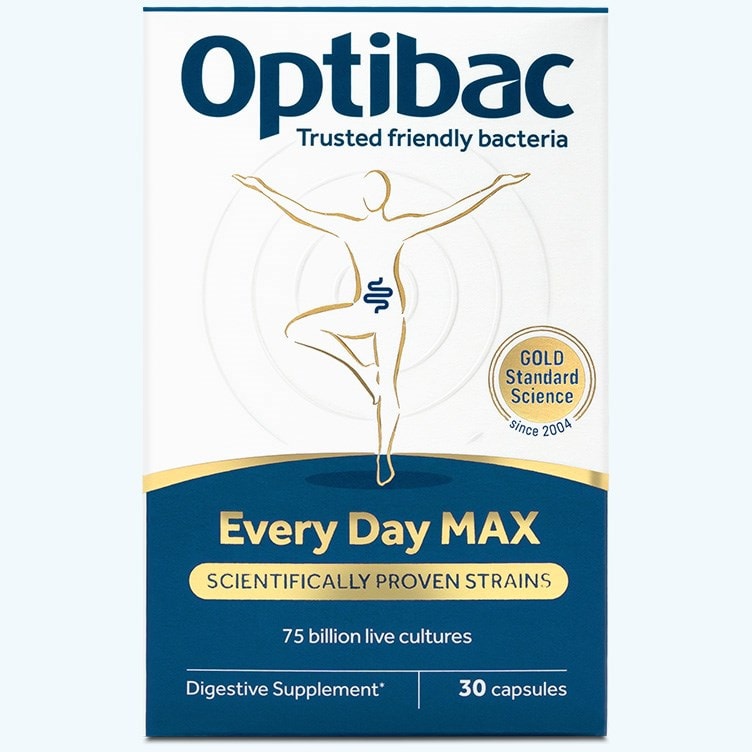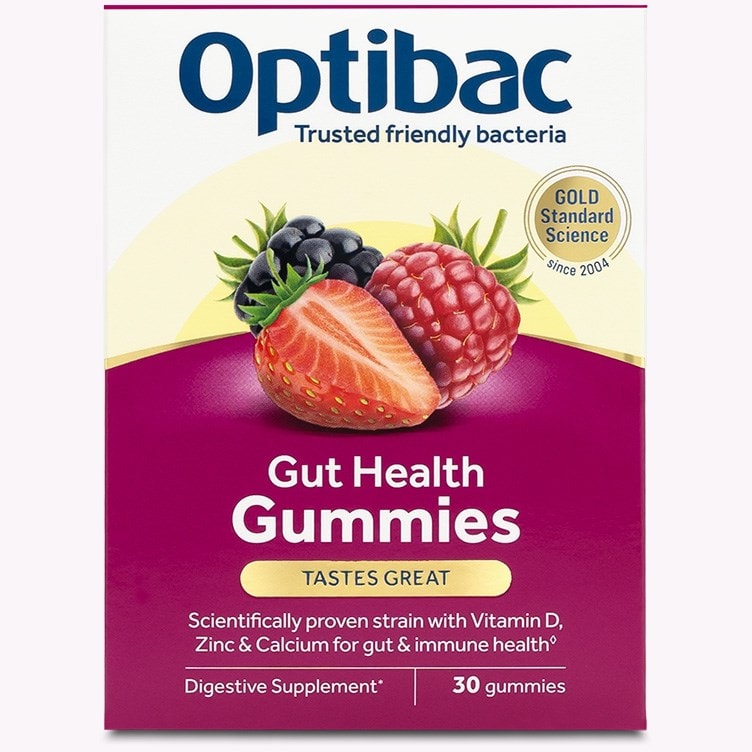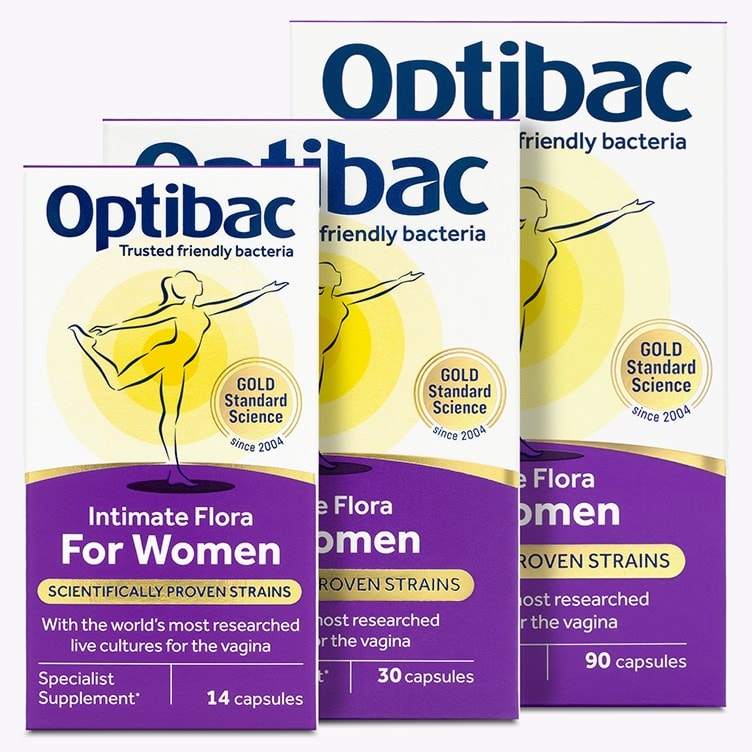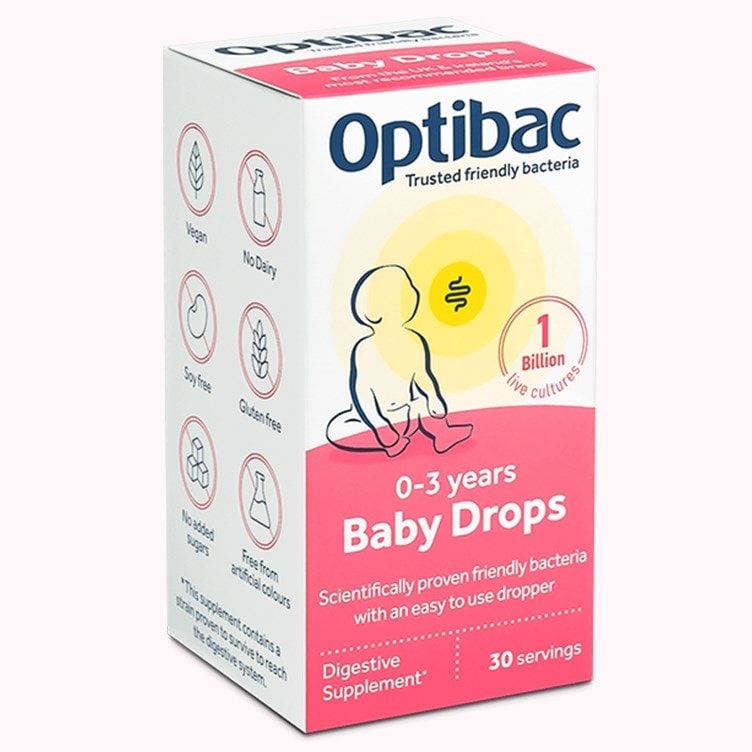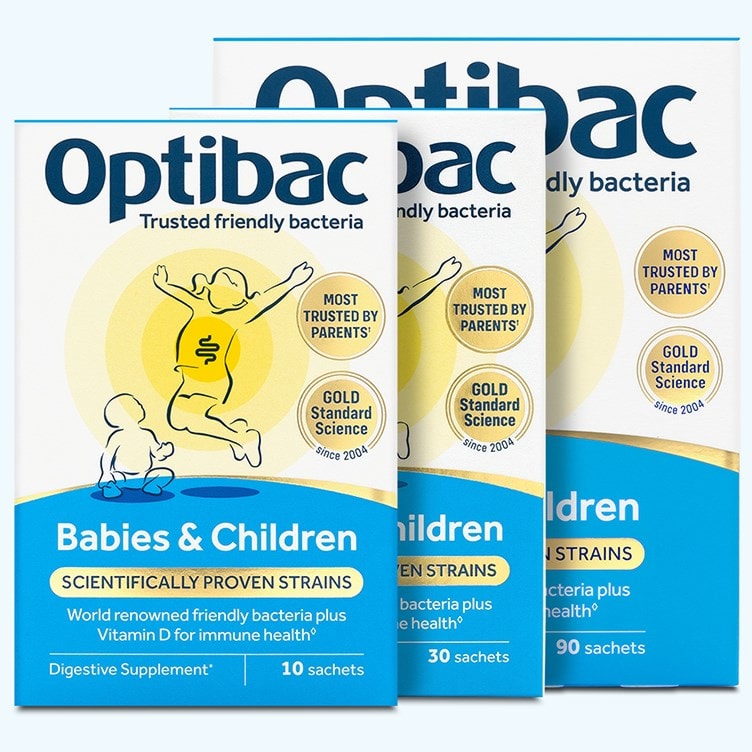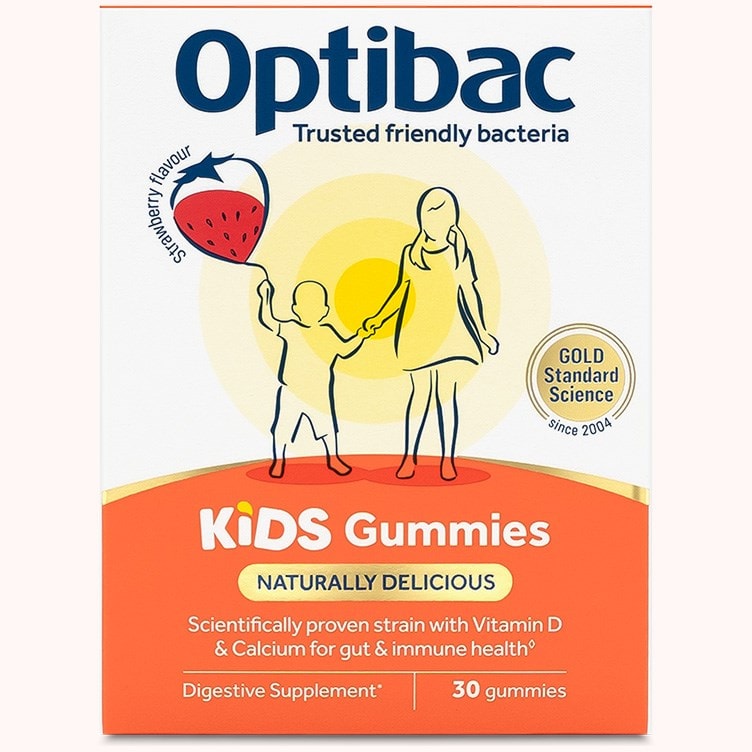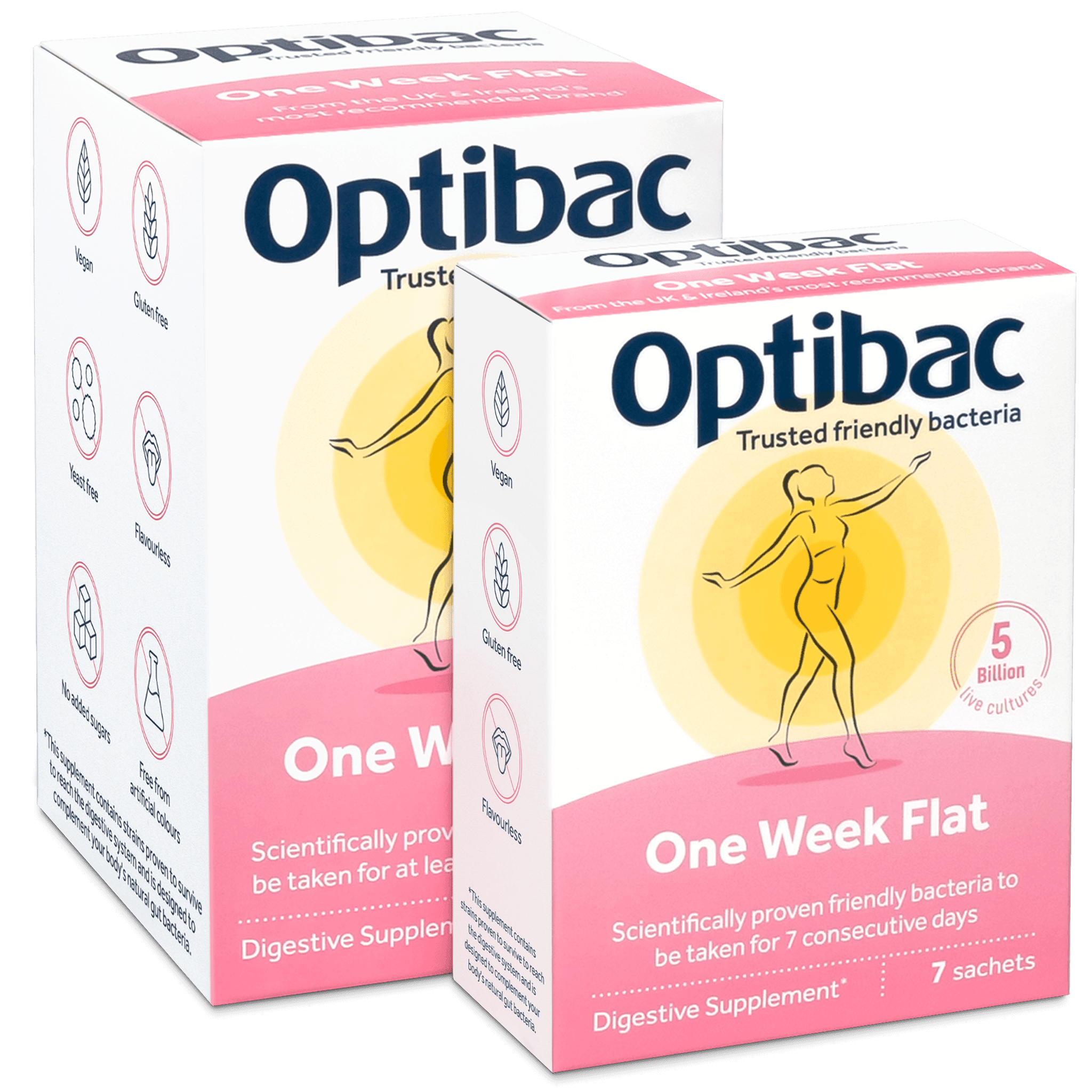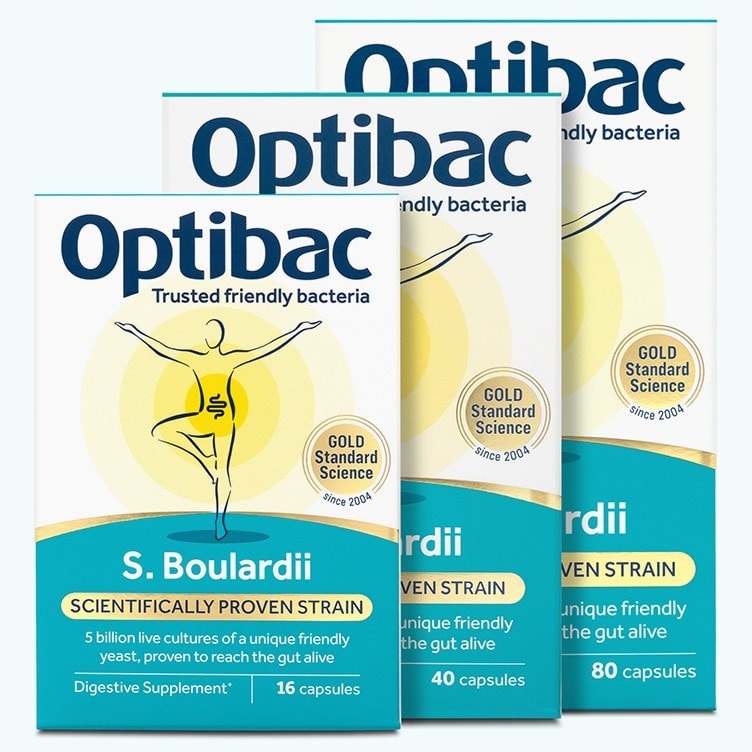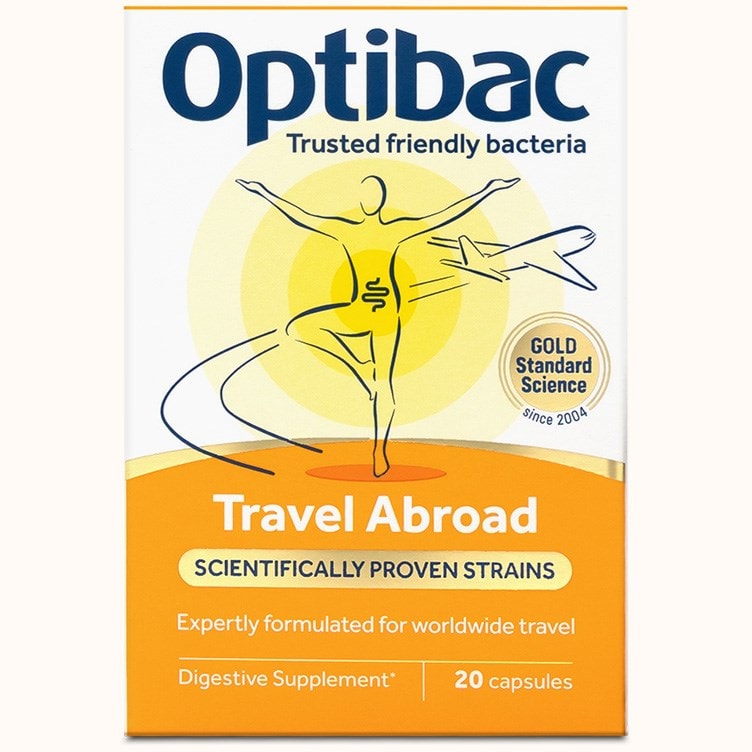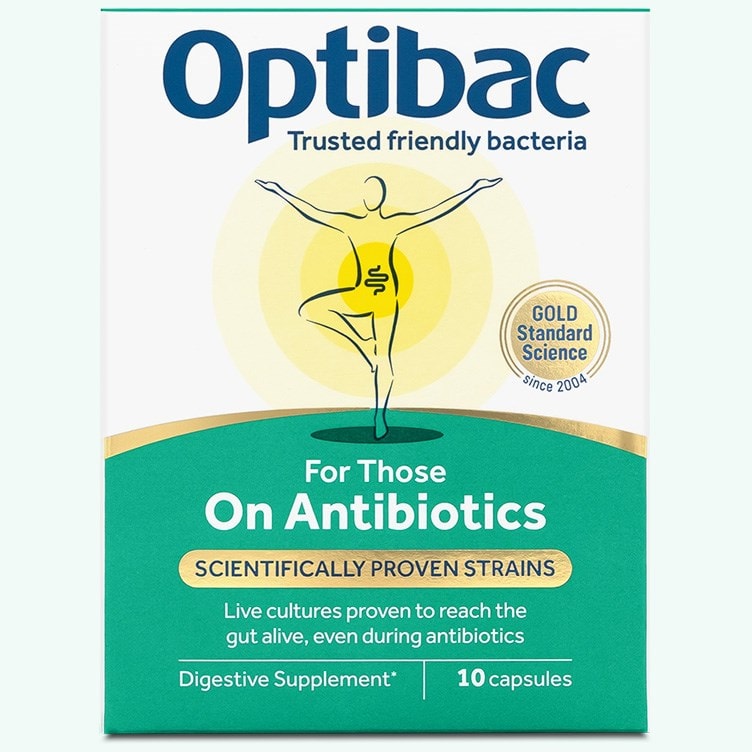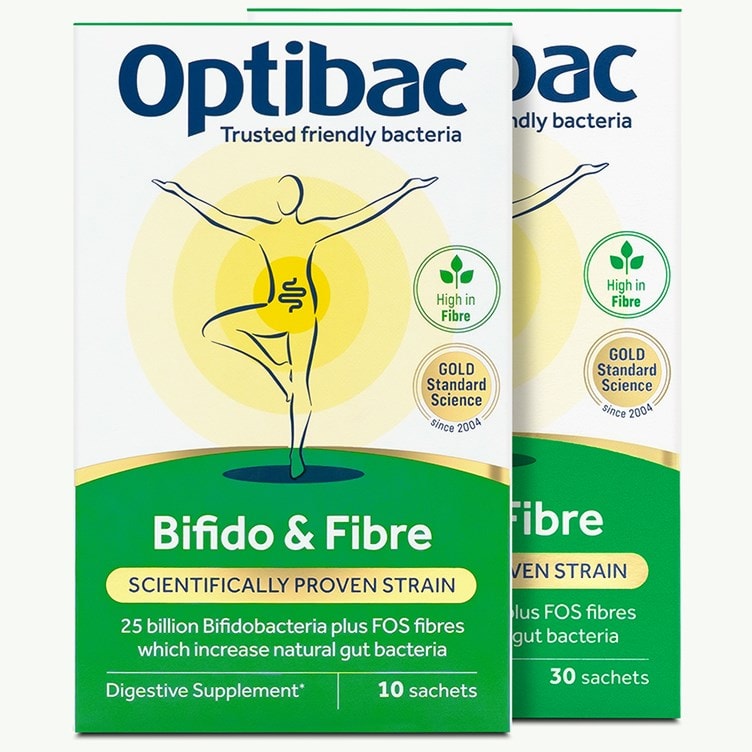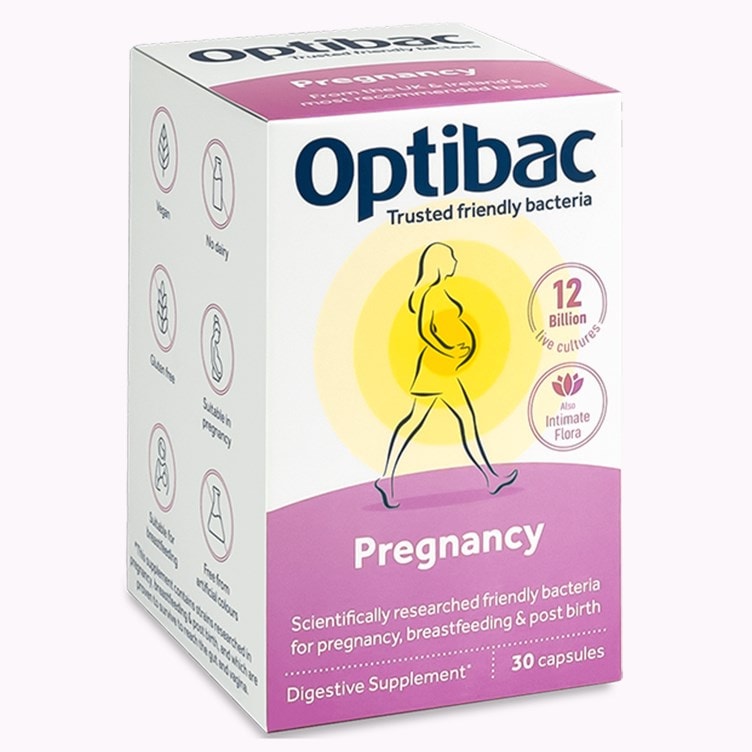Optibac bestsellers:
- For general digestive support: our Every Day supplement is a great friendly bacteria supplement for every day use
- For digestive support without FOS fibres: Every Day EXTRA is a high strength friendly bacteria supplement more suitable for those with IBS
- For the vaginal flora: the strains of friendly bacteria in For Women are proven to reach the vaginal flora4.
- For children age 3 upwards: our yummy Kids Gummies are highly researched gummy supplements designed especially for children5
- For babies and children up to age 12: Babies & Children sachets contain the world's most scientifically studied strain of friendly bacteria6, plus Vitamin D for immune health support
What are friendly bacteria?
If you're new to the world of friendly bacteria, also known as live cultures*, it can be very confusing. In simple terms, we all play host to trillions of tiny micro-organisms, most of which reside in our gut. Some of these are friendly towards their host, and some are not. It's normal to have a mix of good and bad bacteria in the gut microbiome, but an ideal balance is to have more good than bad. Modern living can affect this delicate balance, which is why many people take friendly bacteria supplements containing good bacteria to help complement the natural gut microbiome. If you would like to find out more about good bacteria, head over to the Probiotics Learning Lab.
Is it ok to take friendly bacteria supplements every day?
Yes! It is both safe and recommended to take your friendly bacteria supplement on a daily, ongoing basis. Research7,8,9 suggests that good bacteria only colonise in the gut for a few weeks, so it's a good idea to have a regular intake of friendly bacteria.
Can I open friendly bacteria capsules?
It's absolutely fine to open Optibac friendly bacteria capsules and take the contents directly into the mouth or mix in cool, non-acidic food/drink, without any effect on the viability of the friendly bacteria. Encapsulated friendly bacteria from other brands may need to remain in their capsules, however, so best check with the manufacturer.
Do Optibac supplements contain added vitamins?
Optibac have a range of supplements with added vitamins and minerals for both adults and children. You can choose products with added Vitamin D, Calcium, or Zinc. For more information, visit our Added Nutrients section.
Are all Optibac supplements vegan friendly bacteria?
Most of our range are suitable for vegans, and all Optibac supplements are vegetarian. Shop all our vegan supplements.
To find out where else you can buy the Optibac Probiotics award-winning range of friendly bacteria*, visit our FAQ pages.
References
- Dronkers, T. M. G., Ouwehand, A. C. and Rijkers, G. T. (2020) ‘Global analysis of clinical trials with probiotics’, Heliyon, 6(7). doi: 10.1016/j.heliyon.2020.e04467.
- Probiotics. (2022). NHS Retrieved 31 March 2022, from https://www.nhs.uk/conditions/probiotics/
- Markowiak P and Śliżewska K (2017) Effects of Probiotics, Prebiotics, and Synbiotics on Human Health. Nutrients, 9(9): 1021
- Morelli L. et al., (2004), ‘Utilization of the intestinal tract as a delivery system for urogenital probiotics’. J. Clin. Gastroenterol., 38(6 Suppl): S107-10.
- Gawronska, A. et al. (2006) ‘A randomized double-blind placebo-controlled trial of Lactobacillus GG for abdominal pain disorders in children’, Alimentary Pharmacology & Therapeutics, 25(2). doi: 10.1111/j.1365-2036.2006.03175.x.
- Sudha, M. R. et al. (2018) ‘Efficacy of Bacillus coagulans Unique IS2 in treatment of irritable bowel syndrome in children: a double blind, randomised placebo-controlled study’, Beneficial Microbes, 9(4), pp. 563–572. doi: 10.3920/BM2017.0129.
- Mimura, T. et al. (2004). 'Once daily high dose probiotic therapy (VSL#3) for maintaining remission in recurrent or refractory pouchitis'. Gut, 53(1): 108-114
- Morelli L et al., 2004. 'Utilisation of the intestinal tract as a delivery system for urogenital probiotics'. Journal of Clinical Gastroenterology; 38(6): 107-110
- Jacobsen et al., 1999. 'Screening of probiotic activities of 47 strains of Lactobacillus spp. by in vitro techniques and evaluation of the colonisation ability of 5 selected strains in humans'. Applied and Environmental Microbiology; 65 (11): 4949-4956
^ An independent survey of 1,500 people across the UK & Ireland, November 2023. See T&C's for more details.
*Friendly bacteria, also known as ‘live cultures’ or ‘probiotics’, are good bacteria which live in the gut and are considered to be vital for good digestive and overall health2,3. We must refer to probiotics as 'live cultures' or 'friendly bacteria' throughout our website due to European legislation guidance.
